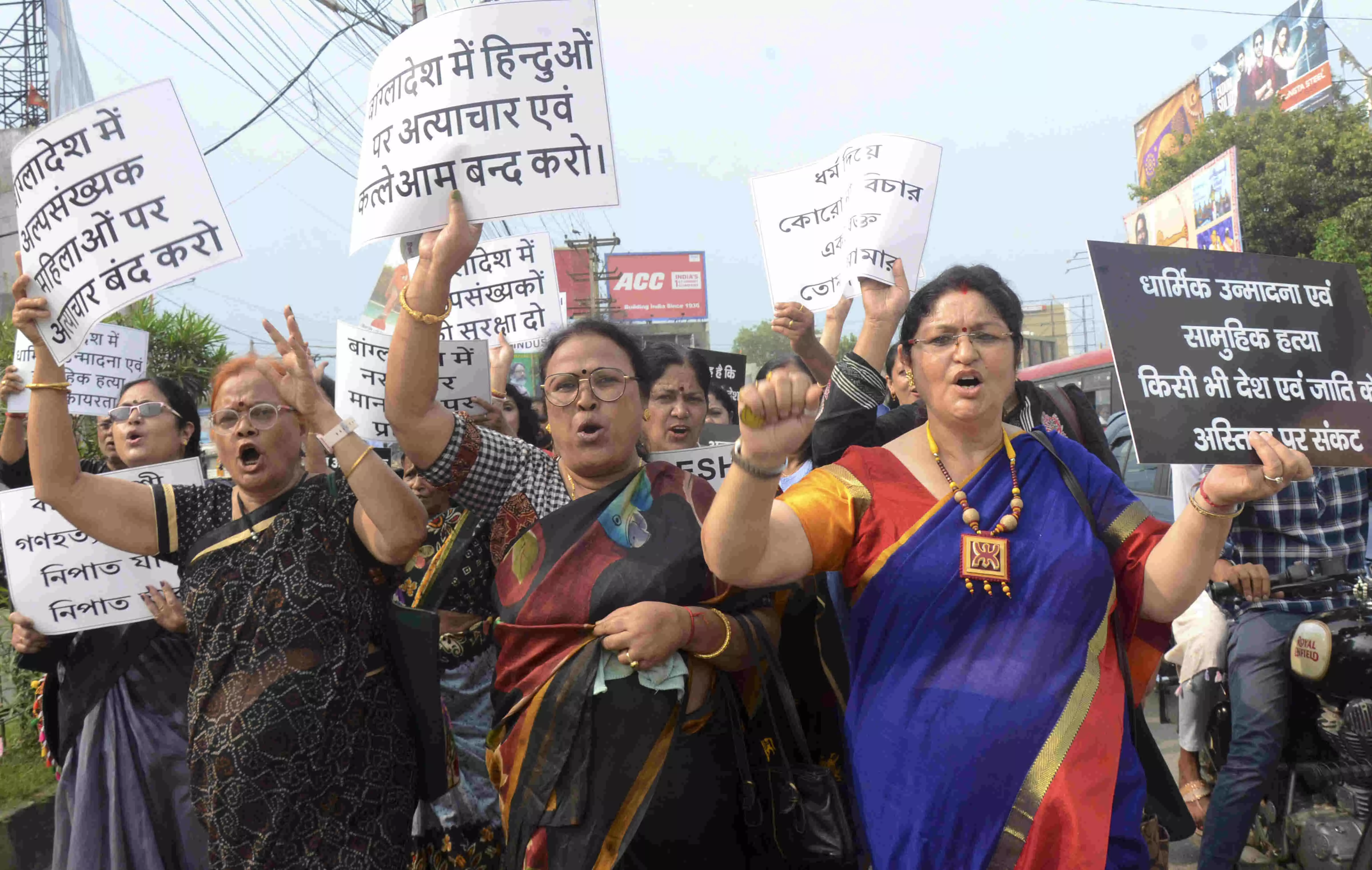On a perilous path

Before the scars inflicted by the death of over 560 protestors could heal, Bangladesh has been subjected to another spell of shameful violence, almost as an offshoot of the previous one. The alarming crisis in the country, following the collapse of Sheikh Hasina’s government on August 5, has laid bare the simmering vulnerabilities encountered by minority communities in the country. Following Hasina’s ouster, Bangladesh has witnessed over 205 reported incidents of attacks against Hindus across 52 districts. The targeted onslaught has stirred anger, resentment, and fear among people belonging to the Hindu community—both physically and mentally.
Many Hindus have been forced to flee their homes, seeking refuge in neighbouring India. Notably, the attacks have not been limited to private property. Fringe elements have desecrated Hindus’ places of worship, and several Hindu leaders associated with Sheikh Hasina have been killed. It is hardly a mystery that Sheikh Hasina, despite being criticised for her ‘authoritarian’ rule, had a pro-India stance—which was repeatedly countered by the opposition Bangladeshi National Party (BNP) and Jamaat-e-Islami. The consecration of Hindu temples by fringe elements was not very uncommon under Hasina’s rule. However, sentiments of such violence remained subdued under the former prime minister’s proactive stance to safeguard her ties with India. Now that the lid of the volcano has blown off, the latent lava has come scorching at the surface—sweeping across the nation.
When Nobel laureate Md Yunus assumed the responsibility of helping form the new government, the task before him was gargantuan. He was not just supposed to pick the most suitable set-up for governance, but also, and in fact primarily, to instil harmony among the people. Terming the attacks on minorities to be “heinous”, Yunus has urged the protesting students to protect all Hindu, Christian, and Buddhist families from harm. However, that may not be enough. He, along with the protestors, must understand what is at stake in the present situation—the cordial relation Bangladesh enjoys with India, and the stability of the revival of a ‘democratic’ Bangladesh. Those rowing the boat presently in Bangladesh ought to show greater stringency and control over the ongoing developments to avoid irreparable losses.
Hearteningly, the response to these atrocities has been widespread, with thousands of protestors, both Muslim and Hindu, taking to the streets to demand justice and protection for minorities. In Dhaka, a significant rally led by Hindu demonstrators called for the establishment of special tribunals to expedite the prosecution of those responsible for the violence. These calls must be heeded—along with other measures—on an urgent basis to ensure that nefarious elements do not take undue advantage of the situation.
At the same time, the disgruntled majority need to be reminded that it was the authoritarian method, complemented by inappropriate policies, of the Hasina government that embroiled the nation in a dark abyss. The minorities residing in the nation don’t share the part of the blame. A realisation has to dawn upon a broader populace that India has stood by the side of Bangladesh through thicks and thins ever since 1971. By spewing venom against India and the Hindu community, the fringe elements in Bangladesh are weakening the fabric of the nation—putting its prospects of democratic revival in peril.



